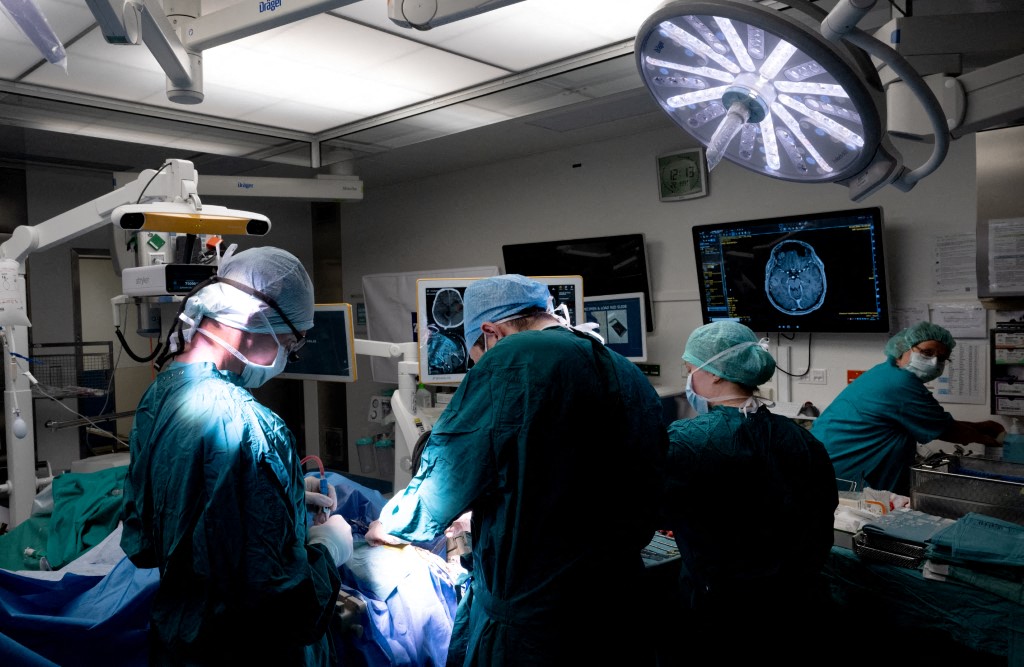What was once seen as a futuristic concept has now become a cornerstone of healthcare evolution: artificial intelligence. No longer confined to theoretical discussions, AI has emerged as a powerful tool reshaping the foundations of modern medicine—from diagnostics to the development of more precise and effective treatment methods. As healthcare systems around the world face increasing pressures, AI has moved from a supporting role to a central element in advancing medical services.
Digital Transformation at the Heart of Healthcare
Speaking to a Lebanese newspaper, Dr. Antoine Saab, Director of Quality and Patient Safety at the Lebanese Geitaoui University Hospital, noted that although AI entered the healthcare field relatively late, it quickly proved its value—especially as recent studies highlighted its contributions to improving medical services on various levels.
With advanced algorithms, AI can now conduct highly detailed analyses of patients' health data on a national scale. This enables the implementation of proactive public health policies, reduces costs, accelerates processes, and allows for personalized treatment plans based on individual genetic profiles.
Currently, AI supports medical decision-making, performs precise analysis of radiographic images, and can even predict a patient's health deterioration in advance. Among the most notable innovations is the “listening AI” technology, which automatically records doctor-patient conversations into medical records—significantly reducing administrative burdens.
Despite these advancements, Dr. Saab stresses that AI must remain a complementary tool to human input. Algorithms cannot fully grasp the emotional or social aspects that often play a critical role in medical decision-making.
Challenges: From Technical Hurdles to Ethical Dilemmas
Dr. Saab also pointed out several challenges still facing AI in the healthcare sector. These include the occasional inaccuracy of algorithm-generated recommendations, varying levels of acceptance among healthcare professionals, and ethical concerns regarding patient data privacy. He emphasized the importance of involving doctors in the design and development of these tools from the start, as well as the necessity of strict human oversight to avoid any errors that could jeopardize patient safety.
He also warned against adopting "universal" AI systems in vastly different local medical environments, highlighting the need for customized solutions built on the data of each institution. Special attention must be paid to avoid algorithmic bias stemming from incomplete or non-representative data sets.
Dr. Saab concluded by envisioning a future where preventive medicine is strengthened through smart tools that monitor vital signs in real time via wearable devices—or even through nano-devices implanted in the body to detect early signs of complex diseases like cancer. He also underlined the potential of genetic fingerprinting from birth to predict and proactively address future health risks.
Protecting Medical Data: The Biggest Challenge in the AI Era
On another front, Jacques Jando, a digital transformation expert, believes that integrating AI into medicine raises complex ethical and legal questions. He highlights three main concerns: data bias, legal ambiguity, and the decline of human interaction between doctors and patients.
Jando explains that some algorithms may unintentionally reinforce biased diagnostic patterns due to their reliance on unbalanced data. He also notes the unresolved issue of liability in medical errors involving AI: should the doctor, the developer, or the system provider be held responsible?
Furthermore, excessive reliance on intelligent systems may erode the human relationship between doctors and patients, negatively impacting the quality of care. For this reason, Jando calls for a smart legal framework to protect data, including technical solutions such as data encryption and the integration of privacy by design. He also advocates for mandatory independent audits of all AI systems before deployment.
The Future of AI in Healthcare: A Partner, Not a Replacement
According to Jando, AI is on track to become a “smart partner” in medicine, working alongside doctors, not replacing them. He predicts that in the coming years, AI systems will be capable of understanding patients' psychological and social contexts, not just their clinical status.
He also points to the emerging concept of the “digital twin”—a virtual model that mirrors an individual patient, allowing for simulation of treatment plans before real-life implementation. Personalized medicine based on genetic analysis and lifestyle factors is also expected to gain increasing importance.
Yet, despite these technological leaps, Jando admits that AI will not be capable of performing complex surgeries without direct human supervision anytime within the next decade. Emergency and intricate medical cases still require the flexibility and intuition that machines have yet to replicate.
He concludes with a quote that may best capture the essence of the AI-healthcare debate:
“AI in healthcare is not a substitute for human intelligence, but an extension of it, meant to enhance care and promote universal health equity.”
Please post your comments on:
[email protected]
 Politics
Politics













